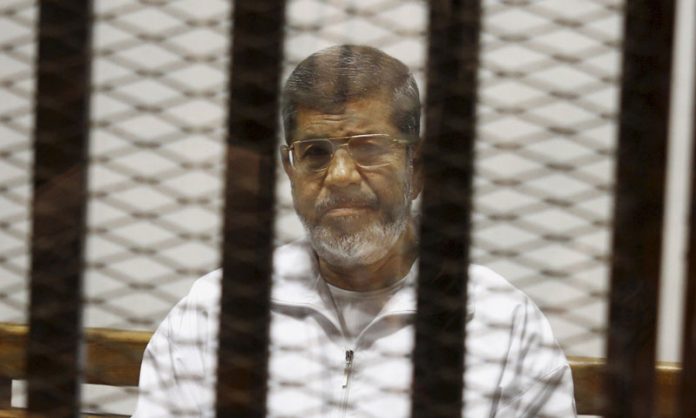Egypt on Wednesday accused the United Nations of seeking to “politicise” the death of the country’s first democratically elected president Mohamed Morsi by calling for an “independent inquiry”.
Foreign ministry spokesperson Ahmed Hafez said he condemned “in the strongest terms” the call by the spokesperson for the UN High Commissioner for Human Rights, Rupert Colville, for an independent investigation into Morsi’s death during a court hearing on Monday.
Hafez said it was a “deliberate attempt to politicise a case of natural death”.
Colville called on Tuesday for a probe into whether the conditions Morsi faced during his nearly six years in custody had contributed to his death. “Any sudden death in custody must be followed by a prompt, impartial, thorough and transparent investigation carried out by an independent body to clarify the cause of death,” he had said.
“Concerns have been raised regarding the conditions of Mr Morsi’s detention, including access to adequate medical care, as well as sufficient access to his lawyers and family,” Colville had added.
He said the investigation must “encompass all aspects of the authorities’ treatment of Mr Morsi to examine whether the conditions of his detention had an impact on his death”.
Magdalena Mughrabi, deputy director for the Middle East at Amnesty International, also said Morsi’s death “raises serious questions about his treatment in custody”.
She called for Egyptian authorities to order “an impartial, thorough and transparent investigation into the circumstances of his death, as well as his detention conditions and his ability to access medical care”.
Earlier, Turkish President Recep Tayyip Erdogan said that he doesn’t believe that Egypt’s former president died of natural causes.
“Mohammed Morsi walked to join God during the trial. Whether this was a normal walk, or were there some other conditions involved, this is something to think about,” the Turkish leader had said.
Morsi was buried under heavy security early on Tuesday. His family attended funeral prayers in the mosque of Cairo’s Tora prison, followed by the burial at a cemetery in the Egyptian capital’s eastern district of Nasr City.
Morsi’s son Ahmed said security agencies refused to allow Morsi to be buried at the family’s cemetery in his hometown of Adwa in Sharqia province, and instead had him interred at a Cairo cemetery dedicated to prominent Islamists.





